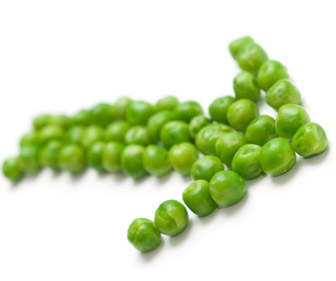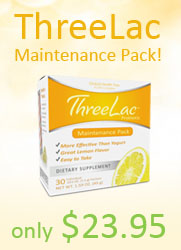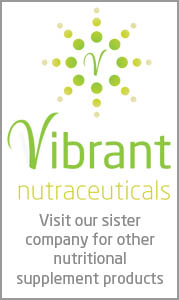The Vegan Way to Good Health [November-19-2013]
 Although they may not have fully embraced veganism millions of Americans are making the decision to eat vegan foods. And from the health standpoint it's certainly a smart thing to do.
Although they may not have fully embraced veganism millions of Americans are making the decision to eat vegan foods. And from the health standpoint it's certainly a smart thing to do.
What does it actually mean to be a vegan? The definition, according to the Vegan Society, is "someone who tries to live without exploiting animals." So, while vegetarians eliminate meat, fish and poultry from their diet, vegans take it a stage further. Strict vegans-thought to be about only 2.5 percent of the population-not only avoid eating meat but also milk, eggs, and even honey.
It's a lifestyle in which no products at all are derived from animals-food, clothing, or anything else. And that's not for everyone. But generally, from a healthy living standpoint they may well be onto something.
As vegan foods are plant-based they certainly help you meet many of the recommendations from leading health authorities. You eat a lot more fruit, vegetables and whole grains and consume less cholesterol and saturated fat. You also enjoy a goodly amount of fiber, which can not only aid digestion but also help you feel satisfied and reduce caloric intake. Weight loss, anyone?
Eating plant-based foods means that you're avoiding the animal fats and proteins that have been shown in numerous studies to raise your risk of cancer, diabetes, rheumatoid arthritis, hypertension, heart disease, and a number of other illnesses and conditions. One major study of half-a-million people, in fact, found that those who often consumed red meat and processed meat died prematurely more frequently than those who didn't.
Here are some numbers that are hard to ignore. The average vegan cholesterol level is about 133, while the average vegetarian cholesterol level is 161. In contrast, the average meat-eater's cholesterol level is 210. Nutritionist Dr. Charles Attwood, author of A Vegetarian Doctor Speaks Out, finds it strange that more is not done in light of this information. If people were being run down by trucks at the same rate that they're dying from heart attacks induced by diets high in meat, eggs, and dairy products, drastic steps would be taken, he says.
But what about protein? It's commonly thought that plant-based foods are low in protein. Not at all, say vegan enthusiasts pointing to the excellent protein content of beans, peanuts and soya.
Amy Cramer and Lisa McComsey, authors of The Vegan Cheat Sheet: Your Take-Everywhere Guide to Plant-based Eating say, "Fruits, vegetables, beans and grains-the staples of a vegan diet-are crammed full of vitamins, minerals and all kinds of good healthy stuff. So vegans who eat a well-balanced and varied diet can get all the nutrients they need including (much to people's surprise) iron and protein."
Other authoritative sources support eating vegan foods.
-
The number one recommendation in the American Cancer Society's (ACS) Guidelines on Nutrition for Cancer Prevention is to eat a diet "with an emphasis on plant sources."
- The position of The Academy of Nutrition and Dietetics (formerly The American Dietetic Association) is: "Appropriately planned vegan diets are healthful, nutritionally adequate and may provide health benefits in the prevention and treatment of certain diseases."
- The British Medical Journal published findings from a study concluding that lifelong vegans have a 57 percent reduced risk of death from heart disease.
- A U.S. News & World online report reviewing various dietary strategies came to the conclusion: "Going vegan could help shed pounds and fend off chronic diseases."
 For over 14 years, we have made it our mission to collaborate with innovative practitioners, nutritional experts, and scientists to realize their concepts and ideas into life changing products and applications. This cultivated group called "The Founding Scientists," is what makes GHT the unique, robust and respected organization in industries of nutrition and health.
For over 14 years, we have made it our mission to collaborate with innovative practitioners, nutritional experts, and scientists to realize their concepts and ideas into life changing products and applications. This cultivated group called "The Founding Scientists," is what makes GHT the unique, robust and respected organization in industries of nutrition and health.









 Although they may not have fully embraced veganism millions of Americans are making the decision to eat vegan foods. And from the health standpoint it's certainly a smart thing to do.
Although they may not have fully embraced veganism millions of Americans are making the decision to eat vegan foods. And from the health standpoint it's certainly a smart thing to do.




